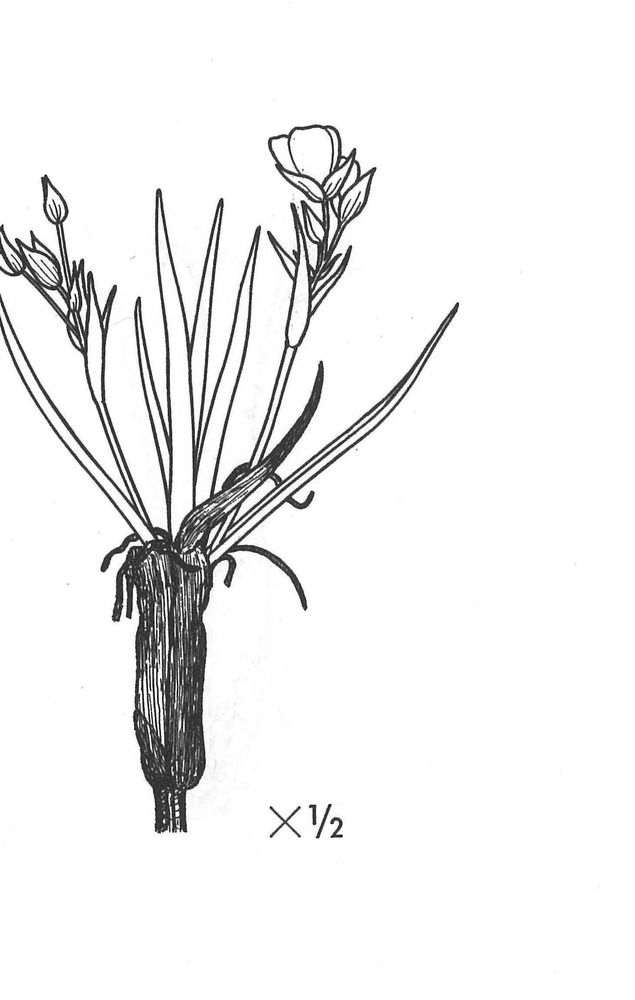| Claytonia acutifolia subsp. graminifolia Hult. | |||
| |||
| Family | Portulacaceae — APG family: Montiaceae | ||
| Synonyms | Claytonia eschscholtzii Cham. | ||
| Description | Plant with thick, long taproot; stems several, ascending or more or less prostrate; basal leaves several, surrounded by hyaline, leafless sheaths, linear to lanceolate- linear, rarely broader; stem leaves 2, opposite, lanceolate; inflorescence few-flow- ered, subtended by bracts; sepals ovate; petals obovate, white or pinkish, with yellowish base. | ||
| Ecology | Stony slopes in the mountains. | ||
| Taxonomy notes | Circumpolar map indicates range of C. acutifolia in a broad sense. | ||
| Uses | The root is eaten raw or boiled by the natives of Siberia; it keeps, uncooked, over the winter. |
This is a digital representation of Eric Hultén’s ‘Flora of Alaska and Neighboring Territories: A Manual of the Vascular Plants’, which was published by Stanford University Press in 1968. The book was digitized by C. Webb (at UAMN) as part of the Flora of Alaska project, with funding by the US NSF (Grant 1759964 to Ickert-Bond & Webb), and with permission of Stanford University Press. Data and images © 1968 Board of Trustees of the Leland Stanford Jr. Univ. Usage licence: Creative Commons BY-NC-SA 4.0. NB: You may find OCR errors; please refer to the hard-copy if in doubt.
